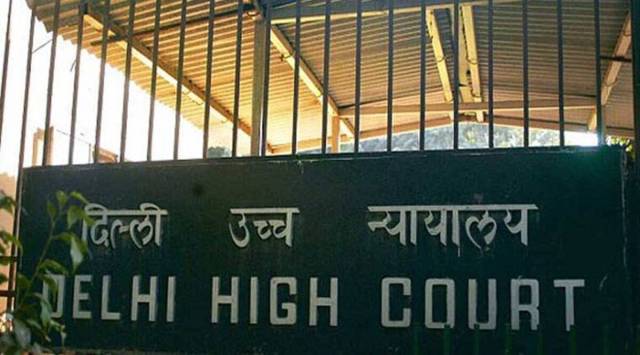Stay updated with the latest - Click here to follow us on Instagram
‘Case against me based on alarming and frightening statements, not evidence’: Khalid Saifi tells Delhi HC
On the allegation against Saifi that there was a sudden flurry of activity on the Delhi Protest Support Group WhatsApp group on February 24, 2020, which he was a part of, John said there were several calls and messages made at the time because violence had broken out and an attempt was made to meet the Joint Commissioner of Police and deputy chief minister
 Saifi and several others have been booked under the Unlawful Activities (Prevention) Act (UAPA) and provisions of the Indian Penal Code (IPC) for allegedly being the "masterminds" of the February 2020 riots, which left 53 people dead and over 700 injured, which erupted during the anti-CAA and NRC protests in the city. (File)
Saifi and several others have been booked under the Unlawful Activities (Prevention) Act (UAPA) and provisions of the Indian Penal Code (IPC) for allegedly being the "masterminds" of the February 2020 riots, which left 53 people dead and over 700 injured, which erupted during the anti-CAA and NRC protests in the city. (File) United Against Hate member Khalid Saifi, who is an accused in the 2020 North East Delhi riots larger conspiracy case of the Delhi Police, argued before the Delhi High Court Wednesday that the case of the prosecution is based on “alarming and frightening statements” and not on any actual evidence.
Senior advocate Rebecca John appeared for Saifi before a special bench of Justice Siddharth Mridul and Justice Rajnish Bhatnagar and referred to the chargesheet filed by the Delhi Police’s Special Cell arguing that the use of alarming statements like “…seeds of hate were planted by United against Hate member…who were United in Hate in reality” is the basis of the prosecution’s “conspiracy theory”.
John argued the case against Saifi was based on the opinion of two to three men sitting in the Special Cell office. “Is it not transparent if I appear in a public meeting? Where does that show conspiracy?” John argued adding “conspiracies are hatched in darkness and silence” while Saifi was participating in public meetings during the agitation against Citizenship Amendment Act two years ago.
On the allegation against Saifi that there was a sudden flurry of activity on the Delhi Protest Support Group WhatsApp group on February 24, 2020, which he was a part of, John said there were several calls and messages made at the time because violence had broken out and an attempt was made to meet the Joint Commissioner of Police and deputy chief minister. “An attempt was made to de-escalate the situation,” John submitted.
Saifi and several others have been booked under the Unlawful Activities (Prevention) Act (UAPA) and provisions of the Indian Penal Code (IPC) for allegedly being the “masterminds” of the February 2020 riots, which left 53 people dead and over 700 injured, which erupted during the anti-CAA and NRC protests in the city.
With respect to the allegation that Saifi received money in an account immediately before the riots started and which was used to fund them, John drew the court’s attention to the transactions of the education trust account which she submitted was set up to fund the education of young Muslim boys and girls. She submitted money was being regularly deposited in the account since October 2018, refuting the police’s argument that money had started coming in since September 2019 a few months before the riots took place.
The police had alleged that as per a witness Saifi asked for three cheques from him and when questioned Saifi rebuked him. John argued that merely because three cheques were withdrawn for a pittance amount of Rs. 150000 does not prove that Saifi funded any terrorist activity under the UAPA. “Where is the finding of the trial court that this money was used for terrorist funding?” John asked.
John also argued that there was a distinction between the cases of Umar Khalid, who was denied bail by the high court in October, and her client’s. She said Saifi had not made any provocative speeches. “At the highest, it can be said that I took part in a local protest at Khureji that is neither criminal nor unconstitutional,” John argued.
Concluding her submissions John drew the court’s attention to the recent decision of the Supreme Court in the case of Anand Teltumbde, an accused in the Elgar Parishad case, submitting that “while discussing conspiracy Courts look into individual roles and allegations and look at whether a prima facie case can be made out…I request this court to do the same,” she said.
Special Public Prosecutor Amit Prasad for the Delhi Police will begin his arguments on December 8.







